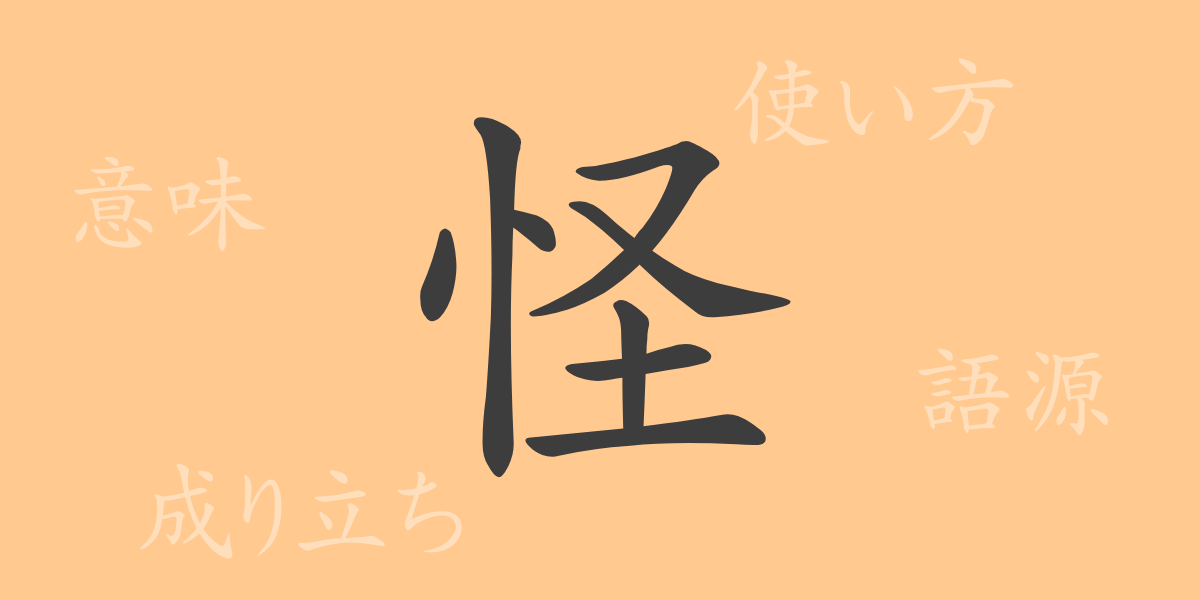The beauty of the Japanese language is brought forth by its complex and rich Kanji system. Among these, the character “怪” (Kai) is used in various ways in everyday life. In this article, we delve into the intriguing world of this mysterious and fascinating Kanji, from its origins and meanings to its usage, and through phrases and idioms containing “怪”, we will unravel its allure.
The Origin of 怪
The Kanji “怪” originated in ancient China, and its formation can be divided into two elements: “心” (Kokoro) and “化” (Ke). The radical that represents the heart indicates emotions or mental states, while “化” signifies change or transformation. The combination of these two elements has led to meanings such as “changing heart,” “mysterious,” and “abnormal.” Over time, this Kanji made its way to Japan and has undergone unique development.
The Meaning and Usage of 怪
The Kanji “怪” includes meanings such as “suspicious” (Ayashii) and “monster” ( Kaibutsu). It often denotes a state that is different from the norm, dubious, or inexplicable. In stories and folklore, the term “monster” can refer to beings with supernatural abilities or creatures of unusual forms. Thus, “怪” is used in a wide range of contexts within the Japanese language.
Readings, Stroke Count, and Radical of 怪
The basic information about the Kanji “怪” is as follows:
- Readings: On’yomi as “かい” (Kai), Kun’yomi as “あやしい” (Ayashii), “あやしむ” (Ayashimu)
- Stroke Count: 8 strokes
- Radical: Heart (心 or 忄, Rishinben)
Idioms, Phrases, and Proverbs Using 怪 and Their Meanings
Idioms and phrases containing “怪” provide a rich palette of expressions in the Japanese language. For example, “怪我” (Kega) refers to an injury to the body, and “怪力” (,Kairyoku) means extraordinary strength. “怪しむ” (Ayashimu) represents the act or sentiment of suspicion. These expressions are used in Japanese conversation and literature to effectively convey emotions and situations.
Conclusion on 怪
The Kanji “怪” enriches the range of expression in the Japanese language through both its form and meaning. Having undergone cultural and linguistic transitions, it is now used in many contexts. From everyday conversations to literary works, this Kanji adds depth and color to our language. We hope that through this article, you have gained an appreciation for the multifaceted charm of “怪”.

























